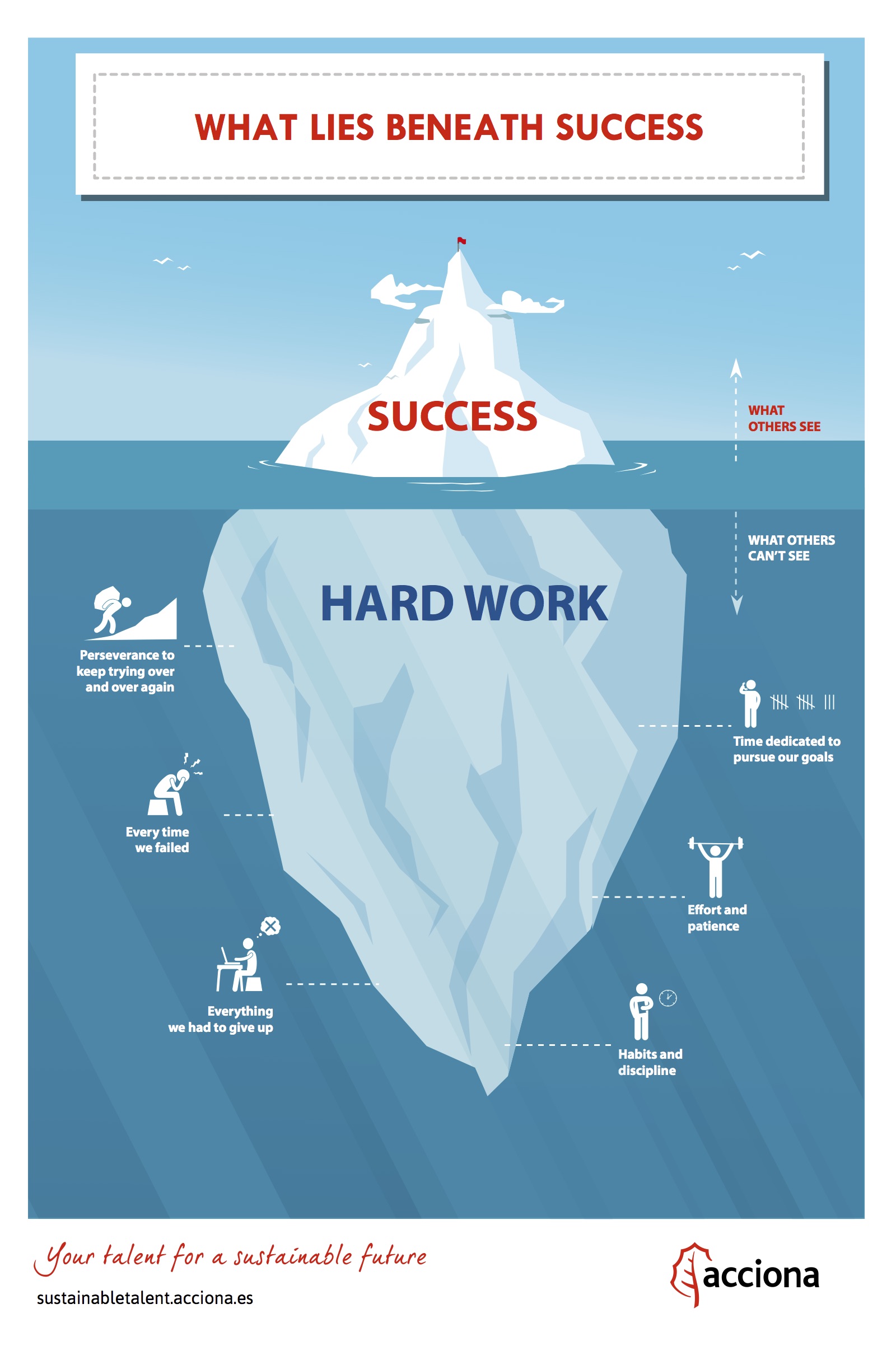Professional accomplishments are often supported by far more work and effort than the naked eye can see. Where does the key to these achievements lie?
If we tried to define what success is, we could almost conclude that there are so many definitions as there are individuals. Each one of us is, or should be, pursuing a personal goal which does not always fit with others’ expectations or with what they’re projecting of themselves upon us. Professional success depends on our particular aspirations, aligned with two further elements: our own values and job expectations.
Accomplishing that kind of personal success is not an easy task, but those who achieve it share some common ground, indeed. Let’s take a look.
The metaphor of the iceberg as a portrayal of success
An iceberg is a large mass of ice floating in the ocean. Usually, only a 20% of its total volume is visible, since the rest remains hidden beneath the waterline. This physical phenomenon has become a classic staple to illustrate diverse aspects regarding many disciplines.
Hemingway used it as a metaphor for his writing style, advocating that the most relevant element in narrative, its meaning, should lie beneath the surface of the story. Freud also appealed to icebergs when elaborating on the unconscious mind, the submerged area of our psychic apparatus which is much deeper than its conscious counterpart.
Regarding professional fields and the notion of success, the iceberg serves us as a perfect paradigmatic figure, too. We tend to point at the achievements of those people we consider successful, and we identify their accomplishments clearly, but not always do we realize the solid foundations beneath them. The following infographic explains this concept in detail:

Scalable Goals and objectives
José María Peinado, in his book “Desempeño 3.0”, elaborates on what we must do in order to match “where we are” and “where we want to be“ regarding our career. This goal must be set by objectives based on reviewable and adaptive strategies, in accordance with any circumstance and the imposing reality. Moreover, if those goals we set for ourselves are concrete and scalable, keeping the motivation to achieve them will be easier.
Once clear and defined, coaching and motivational experts on career development refer to several cornerstones that can help us accomplish those goals:
- Be aware of your strengths and weaknesses: Kurt Cobain said that “dreaming of the person you want to be is wasting the person you already are”. We must dare to be, and for that it is crucial to identify our best qualities and try to place value on them. Sometimes our worst enemies are ourselves, since we may thwart our purposes by thinking that we will never be able to reach them. That’s why it is important to avoid the so-called “limiting beliefs”.
- Know your direction: if you don´t know your destination, you will never get there. This illustrative aphorism seems very appropriate to summarize this point. We already mentioned scalable objectives. Be patient and follow those particular resolutions.
- A little risk is always necessary: one of the distinctive features of those who reach success, more often than not, is that they are willing to take a chance on what they pursue regardless of the uncertainty of the outcome. If you wait until everything is certain, most probably you’ll never get anything started.
- Be adaptive to changes: nowadays, labour market is extremely competitive, and education and expertise are not enough anymore. Plug yourself into reality and don’t lose track of what’s going on in your professional environment, and embrace innovation and new technologies so that your skills don’t become outdated.
Sources: Desempeño 3.0, José María Peinado, Wikipedia


